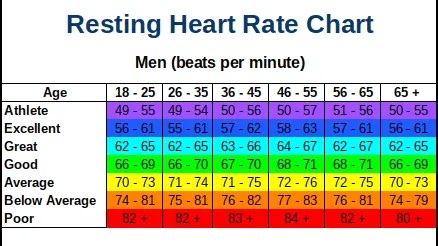what’s a normal heart rate The heart is a vital organ that pumps blood to all parts of the body. It beats at a regular rhythm, which is referred to as the heart rate. A normal heart rate is essential for maintaining good health, and any significant deviation from the normal range can indicate an underlying health condition.

The average adult’s resting heart rate is between 60 and 100 beats per minute (bpm). However, it is essential to note that several factors can influence heart rate, such as age, fitness level, medications, and underlying health conditions.
Age and Heart Rate
As individuals age, ther heart rate teends 2 decrease. This decrease is due to several factors, such as a reduction in physical activity and changes in the heart’s electrical conduction system. According to the American Heart Association, the normal resting heart rate for adults over the age of 18 is between 60 and 100 bpm.
Fitness Level and Heart Rate
Individuals who exercise regularly tend to have a lower resting heart rate. Regular exercise strengthens the heart muscle, which allows the heart to pump more efficiently, resulting in a lower resting heart rate. Athletes, for example, can have resting heart rates as low as 40 bpm.
Medications and Heart Rate
Certain medications can affect heart rate, such as beta-blockers, which are commonly used to treat high blood pressure and heart disease. Beta-blockers slow the heart rate by blocking the effects of the hormone adrenaline on the heart. Other medications, such as stimulants like caffeine and nicotine, can increase heart rate.
Underlying Health Conditions and Heart Rate
Several underlying health conditions can affect heart rate, such as thyroid disorders, anemia, and infections. Thyroid hormones play a critical role in regulating heart rate, and an overactive thyroid gland can result in a rapid heart rate, while an underactive thyroid gland can result in a slow heart rate. Anemia, which is a condition characterized by a low red blood cell count, can result in a rapid heart rate as the heart tries to compensate for the decreased oxygen-carrying capacity of the blood. Infections, such as sepsis, can cause a rapid heart rate as the body tries to fight off the infection.
It is essential to note that several factors can affect heart rate, and it is crucial to consider these factors when evaluating an individual’s heart rate. For example, an athlete with a resting heart rate of 45 bpm may be healthy, while a sedentary individual with a resting heart rate of 45 bpm may have an underlying health condition.